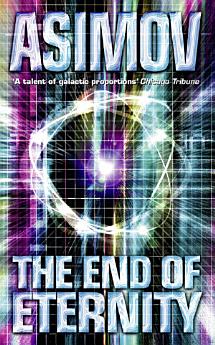The End of Eternity
এই ই-বুকের বিষয়ে
Andrew Harlan’s job is to range through past and present centuries monitoring and even altering Time’s myriad cause-and-effect relationships.
As a Technician with the Allwhen Council, he initiates Reality Changes that may affect the lives of as many as fifty billion people – and a million or more of them may be so drastically affected as to be considered new individulas. Above all, therefore, a Technician must be dispassionate. An emotional make-up is a distinct handicap. Then Harlan meets Noÿs and falls victim to a phenomenon older than Time itself – love.
Years of self-discipline are cast aside as Harlan uses the awesome techniques of the Eternals to twist Time so that he and Noÿs might survive... together.
লেখক সম্পর্কে
Isaac Asimov was born in 1920 in Russia and was brought to the USA by his parents three years later. He grew up in Brooklyn and attended Columbia University. After a short spell in the army, he gained a doctorate and worked in academia and chemical research.
Asimov’s career as a science fiction writer began in 1939 with the short story ‘Marooned Off Vesta’. Thereafter he became a regular contributor to the leading SF magazines of the day. Asimov wrote hundreds of short stories and novels, including the iconic I, Robot and Foundation. He won the Hugo Award four times and the Nebula Award once.
Apart from his world-famous science fiction, Asimov also wrote highly successful detective mystery stories, a four-volume History of North America, a two-volume Guide to the Bible, a biographical dictionary, encyclopaedias, and textbooks, as well as two volumes of autobiography.
Asimov died in 1992 at the age of 72.








